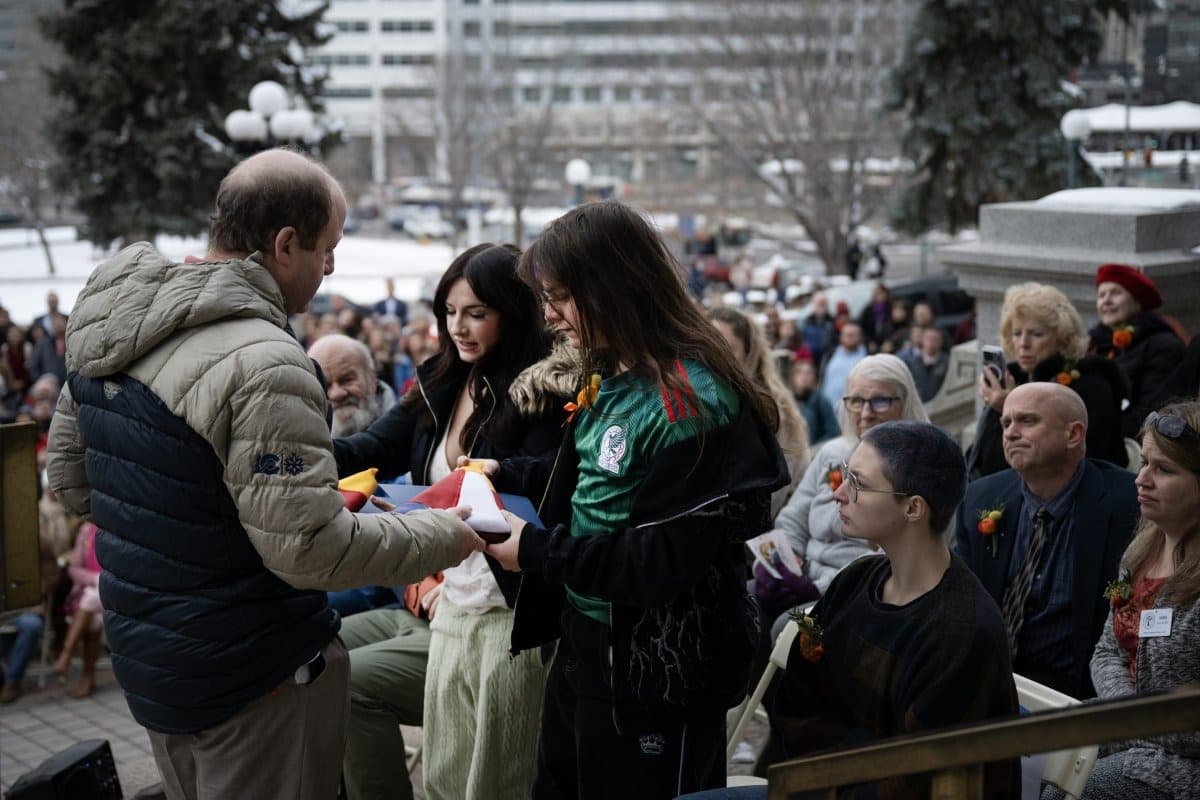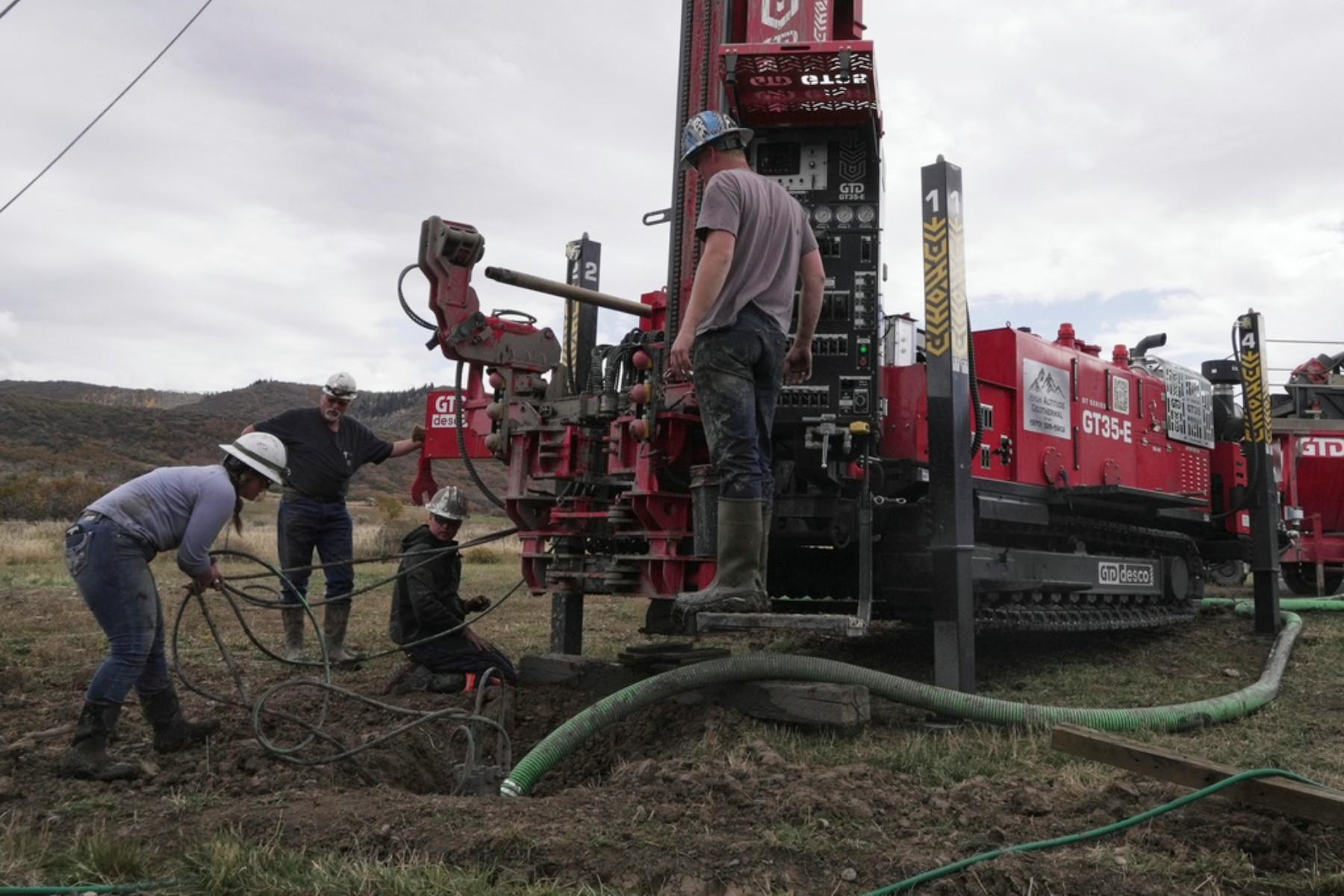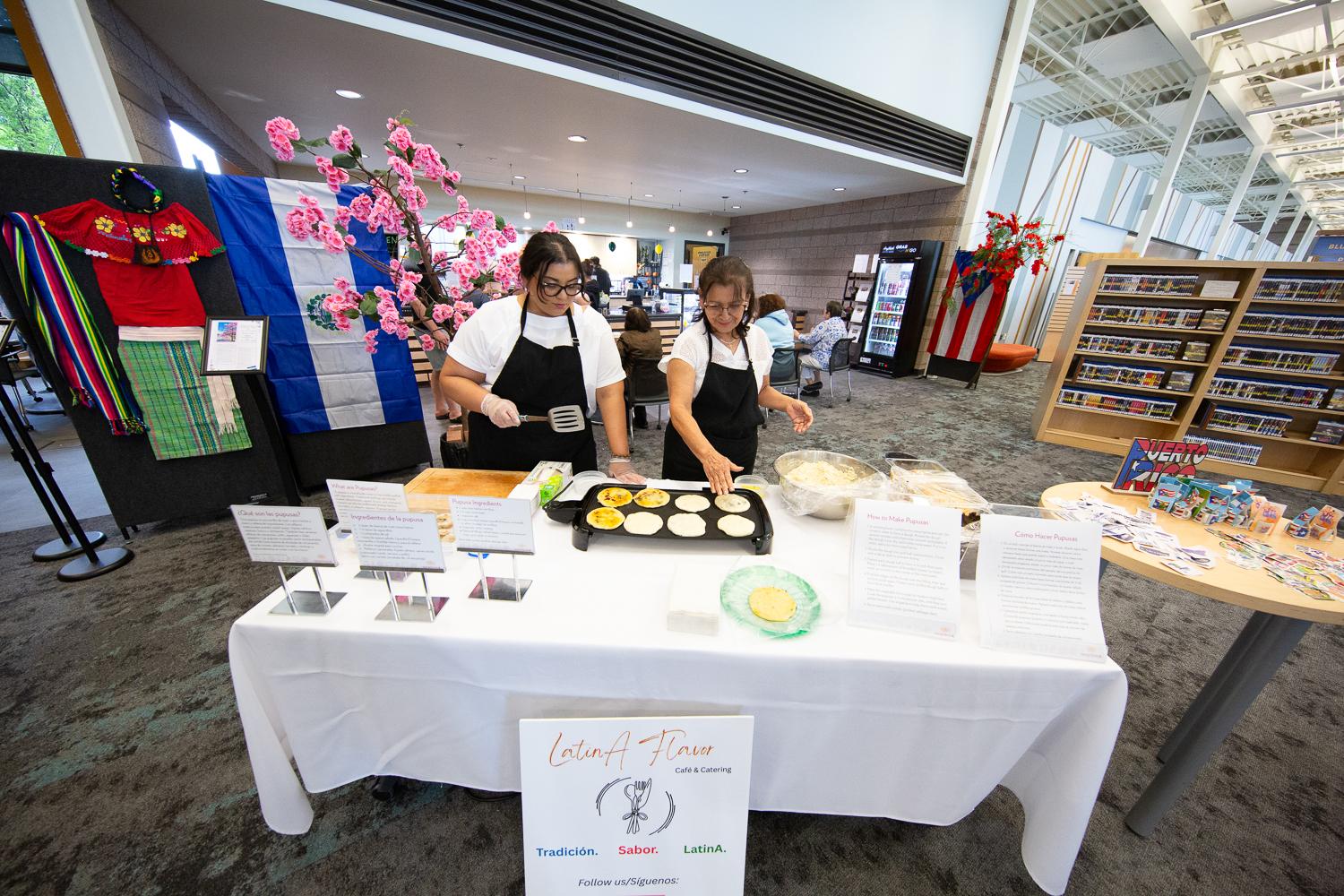
Hispanic Heritage month, which starts Monday, is usually celebrated with food and gatherings, but this year, because of the Trump Administration’s ICE raids, some communities around Colorado are scaling back.
But three women who’ve just opened a cafe in Thornton are going full steam ahead.
Karen Colato, her sister, Odila Colato and their longtime friend Melba Velázquez launched LatinA Flavor Café & Catering inside Anythink Wright Farms Library in Thornton a week before the start of the monthlong celebration.
“So for us, it’s about showing up,” Karen Colato said in an interview on the day the trio launched their long-time dream with a pupusa demonstration last Monday. “Showing who we truly are, sharing our true values every day, not just for the month of Hispanic Heritage Month,” were a few of the reasons they did it. “I don’t want to go under the shadow and hide just for what I look like or what I am.”
Instead, they decided to put “Latina” in the name of the cafe, making the last A capital.
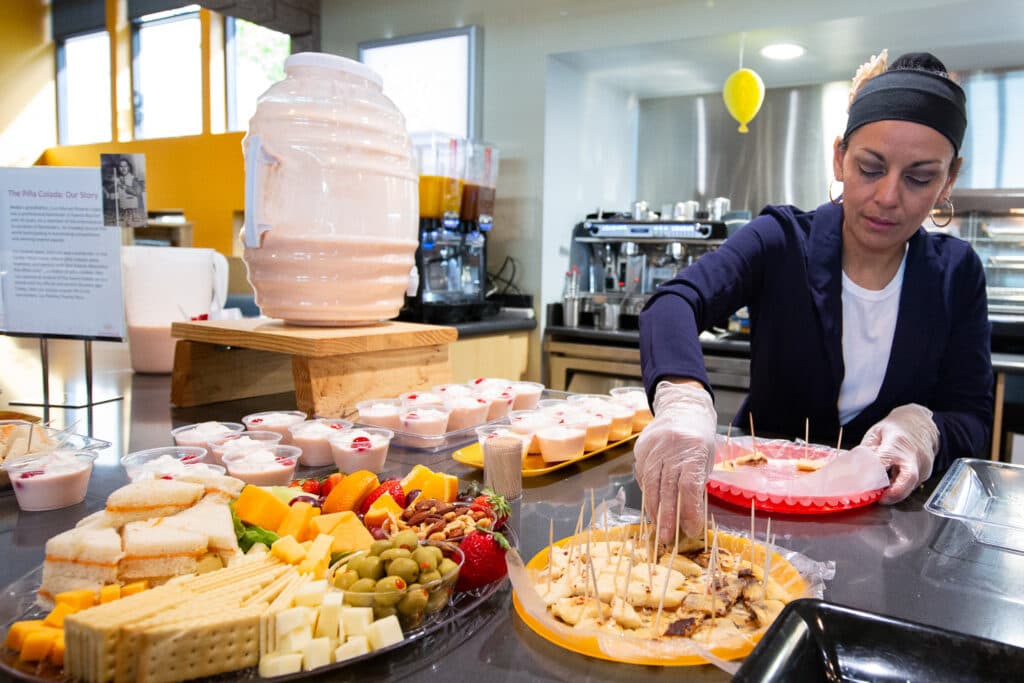
In an open area in the giant library, close to where rental books are stacked, there’s a cafe, and it was in need of a new tenant. The Colato sisters and Velázquez responded to a request for proposals and won over a handful of competitors the right to be the cafe-in-residence for the next three years at no cost.
As the demo began, Karen Colato had already set everything up: a few containers of fixin’s — cheese, beans, chicken and pork prepared ahead of time at a commissary kitchen — and a large bowl of pale yellow pupusa dough.
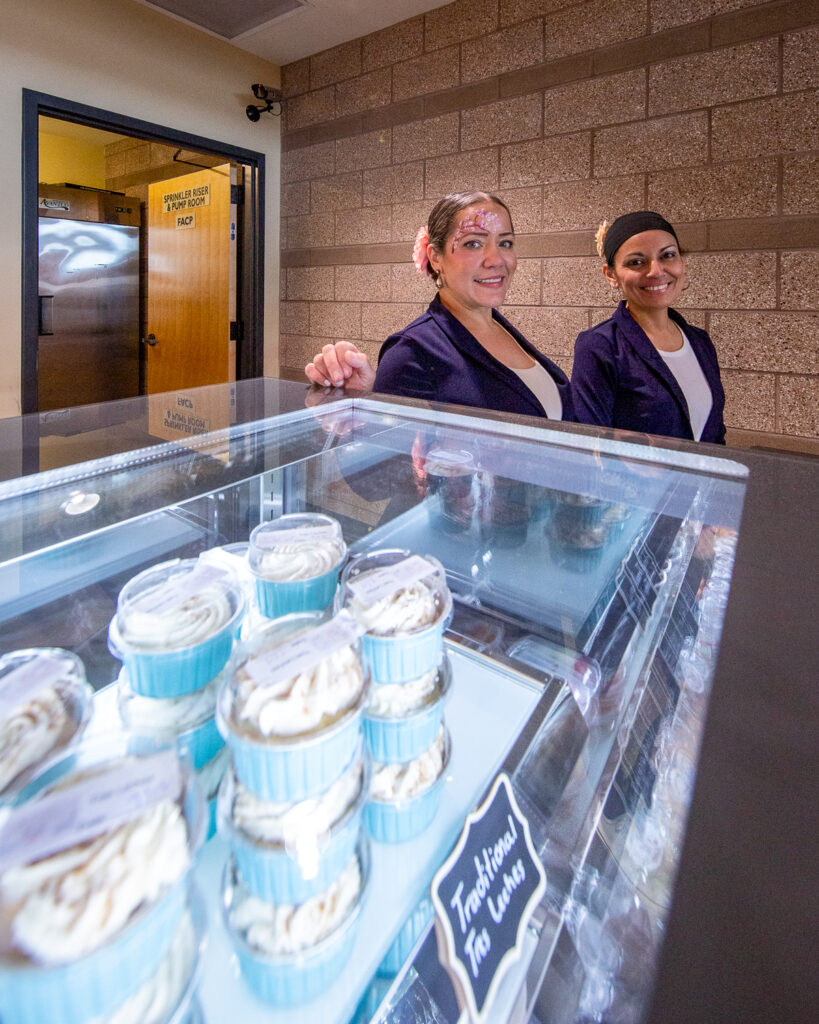
“Hi everyone,” Karen said with a slightly nervous but confident voice before a handful of patrons who initially were not quite sure what was going on. “Thank you so much for gathering around; we’re about to start our demonstration … pupusa is the national dish from El Salvador. It’s corn-based dough with different fillings inside … today we’re doing a demonstration of beans, cheese, pork and chicken. Is there anyone that would like to try and make one with us?”
A few people came up to try making a pupusa, which involves stuffing a pancake-sized ball of dough with the different proteins, flattening it between two hands with clapping motions, then frying it on a griddle. The trio didn’t let concerns about the raids, which have increased since Donald Trump regained the presidency, stop them — although they are aware of heightened concerns of people in their community.
“I fear for all of our brothers and sisters,” said Karen Colata, who was born in California to parents from El Salvador. “When the community is hurting, I hurt as well.”
Several leaders of organizations serving Colorado’s Hispanic immigrant community have been saying their celebrations are being moved indoors to keep their people as safe from ICE as possible.
Enrique Orozco-Perez is the co-executive director of Compañeros Four Corners Immigrant Resource Center in Durango. The non-profit offers legal and welcoming services to immigrants. He said for the third year, they’re doing a Latin American Cultural Celebration.
“We sponsor about seven different community groups from different parts of either Mexico or Latin America, to make very traditional foods that are given to the community, all donation-based.”
He also said they hire a local band playing northern Mexican music and a DJ who’s an immigrant as well. “And we have performances by children in the community. I know right now there’s a dance being choreographed, and so it’s a wonderful event.”

This year, however, they are taking precautions. Since President Donald Trump took office, ICE agents have been showing up at a range of locations, sometimes snatching up people who look like they might be undocumented and sending them to immigration detention facilities. Some reports are saying that the uptick has been about five-fold, targeting Hispanic and other immigrant communities, and causing new plans to be made on the fly.
“In the past, we’ve done it in the public park called Rotary Park,” Orozco-Perez said. Now, however, they’re going to use the campus of a local Unitarian church. “They’re donating their entire campus, which is private property, for us to celebrate on, and we have our own Rapid Response network volunteers in this area that will be helping us with security and monitoring if we feel there's any ICE presence.”
The feelings are the same in other parts of the state about Hispanic Heritage Month, the rare cultural holiday month that straddles two months. That’s based on history from the 1800s, according to Ernesto Sagás, a professor in the race, gender and ethnic studies department at Colorado State University in Fort Collins.
“It starts on September 15, which is when the provinces of Central America declared their independence,” he said in a recent interview. “They were all together. What is nowadays Guatemala, Honduras, El Salvador, Nicaragua, Costa Rica — they were not independent nations, and they separated from Mexico at that time. And also September 16 is a big day in Mexico's Declaration of Independence.”
Independence from Spain came in the 1820s, but the holiday came along much later. It was initially a weeklong observance in 1968, before it became its own full month two decades later in 1988.
In North America, the month has never had the same notoriety as, for example, Black History Month, because the origins of the holiday happened outside of the United States, according to Sagás.
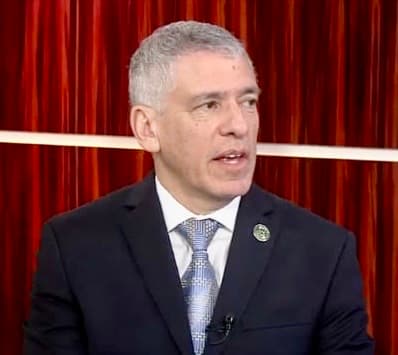
“Unlike the other heritage months that have a domestic connection, this one has a foreign connection. It has a Latin American connection,” he said. “So technically you're celebrating Hispanic heritage, but it starts with the independence of Central America, which is very foreign to a lot of Latinos in the US that have been here for many generations … So I think that that foreign connection makes it pretty alien to a lot of people. So also the fact that, again, it's not a calendar month — [it] starts halfway through a month. And so it's kind of this odd duck.”
As the monthlong celebration begins, other community organizations are changing their plans. Arturo Vargas, a pastor who asked to keep the name of his 200-person Denver-metro area church private, says ICE raids are interfering with both celebrations and mental health.
“We try to live our normal lives. As you see mental health, it’s a really great problem,” he said. “All the fear, all the things you hear, social media, news, everything. It makes it really hard for the people to have peace in their heart.”
He said that there’s usually a carnival outside the church to honor the month.
“We usually have food,” he said with a laugh, pointing out (as all of the sources for this story did) that Latinos can’t have a real celebration without food. In the past, the celebration was multifaceted and included a small carnival. “We have a taco shop outside with the music, things like that.” Then he paused, his voice filling with the distress he described. “I don’t think we are going to have that this year. Everything has to happen inside of the church.”
He said he anticipates having to send people out of the building if someone from ICE shows up with a court order.
“We [are] just going to ask that person to go outside and deal with their dealings with ICE,” he said. “The building is private property; [ICE] should wait outside. That will be the idea. But as you see in the news, they don’t respect that anymore … If we’re going to celebrate Hispanic Heritage Month, we are going to do everything inside of the church now.”
Over on the Western Slope, the same concerns are arising, according to Ricardo Perez, executive director of the Hispanic Affairs Project of Western Colorado. Born in El Salvador, he has lived in Montrose since 2003. He said the function of his organization is to help new Hispanic immigrants to integrate socially and economically, but that the raids and the stress they bring have made that harder in recent months. “Sadly, what is happening at the federal level is also impacting us at the local level,” he said.
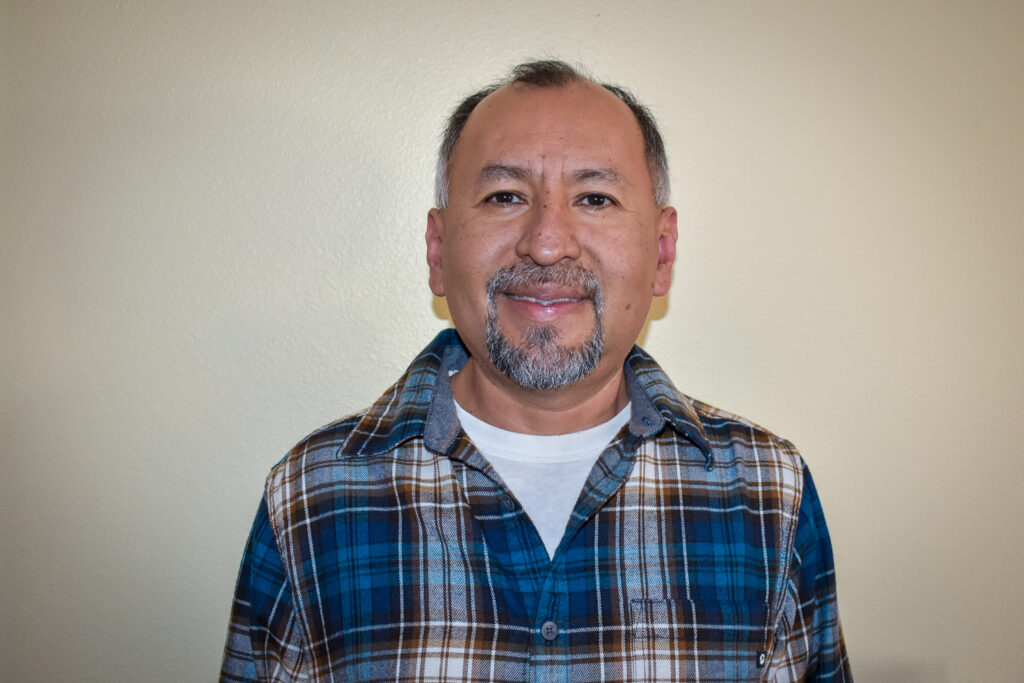
“Our Latino Hispanic families are facing a lot of stress, many challenges, a lot of disruption as well,” he said. “All those elements – ICE activities happening a lot in our communities – all of those situations are creating some level of disconnection of our immigrant community in the public life … They need to go to work, the kids need to go to the school; they need to go out to the clinic and stay in sports activities after school, going to the store …”
With people reluctant to take the chance to do these things, he said a big celebration isn’t looking likely. Instead, Professor Sagás will be coming to town in the middle of the month to speak about his new book, Latino Colorado: The Struggle for Equality in the Centennial State.
Across the state in Southeastern Colorado, Nancy Diaz is the executive director of Lamar Unidos, a non-profit in Lamar, a community of about 8,000 people, located less than an hour from the Colorado/Kansas border. She helps mainly Mexican immigrants get drivers’ licenses, do their income taxes, and make appointments with the Mexican consulate, helping between 100 and 300 every year. In the past, they would gather about 50 strong at a public community center and share food and conversation. This year, any celebration will be different, she said.
“It has to be done in small groups because we are in a small office … We decided not to do a community meeting because those were held in the community building, which is a public space … We've been thinking that celebrating is having Noche de Loteria, which is a Mexican bingo game.”
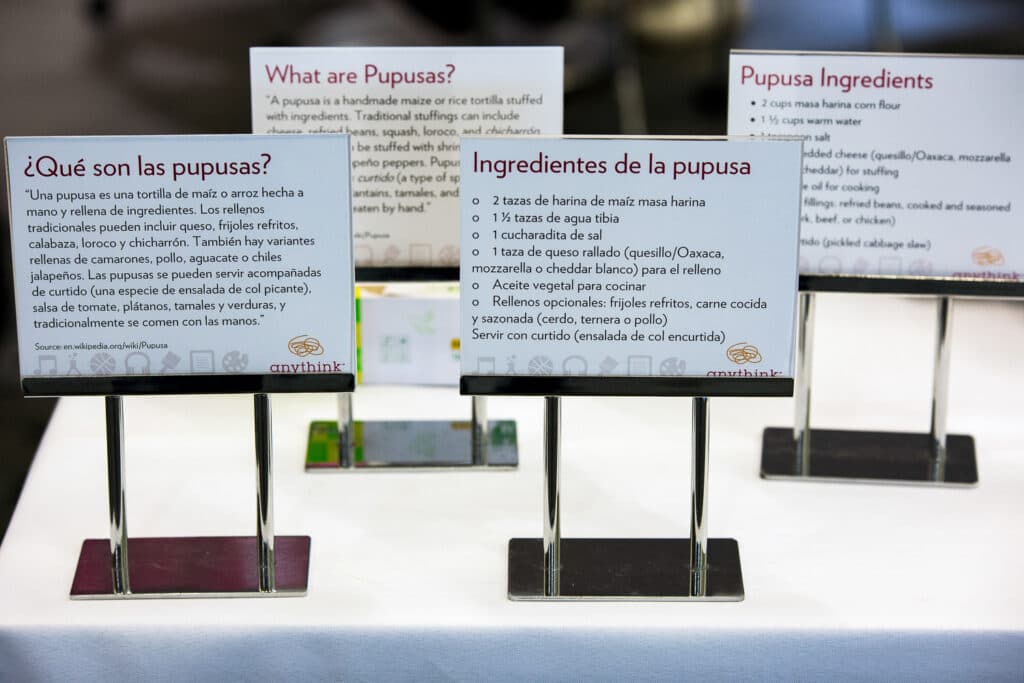
Even as people are scaling back, the new cafe at the library in Thornton still wants to show up to celebrate Latinidad. Melba Velázquez, who is Puerto Rican and a longtime friend of the Colata sisters, handles the baking at the cafe, which features three types of tres leches cakes. She said in her day job at a non-profit helping Latinos become entrepreneurs, clients have been asking about remote services so they can stay safe at home. But she still plans to do what she normally does.
“It’s not something that we traditionally celebrate in Puerto Rico, but it’s something that is very much celebrated here, so we have jumped into the tradition here,” she said. “There’s always a little activity festival … to go and explore other flavors and music and experiences.”
And Perez, who heads the organization on the Western Slope, said that kind of sticking together is one way to stay connected as the threat of ICE showing up looms. “The immigrant community, the Latino Hispanic community, is a resilient community,” he said, “and we will overcome together.”



